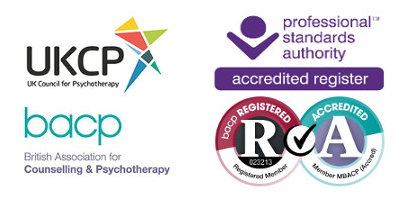Cognitive Behavioural Therapy (CBT) in London
A cognitive and behavioural therapeutic approach is combined with and integrated into the wide range of tools and modalities Marcus draws on as an experienced psychotherapist to meet your particular needs and goals.
Cognitive-behavioural methods are combined with gestalt, formative and psychodynamic approaches as well as humanistic therapies like psychosynthesis and transactional analysis.
Cognitive Behavioural Approach to Anxiety, Stress and Overwhelm
When you experience stress, overwhelm, anxiety or even panic attacks, the most effective response in therapy is to closely (and without judgment) examine the detail of what happens. The Cognitive Behavioural therapist tracks with you, in forensic detail, the what, when and how of, for example, the panic attack.
The Cognitive Behavioural approach to stress and anxiety will:
- Help you learn what the triggers for the stress or anxiety are, in terms of external events or internal thoughts and sensations.
- Highlight the negative thoughts and expectations that pass through your mind, the associated sensations in the body and the thoughts that arise in reaction to those sensations.
Therapy for Anxiety, Stress and Overwhelm teaches you to self-regulate and self-soothe using mindfulness, affirmation, ‘somatic experiencing’ and ‘personal space’ exercises and the tools of Pesso-Boyden Therapy.
Phobias, Social Anxiety and Cognitive Behavioural Methods
In Therapy for Social Anxiety or Phobia we look at negative cognitions. That’s the negative predictions and assumptions you carry around that are associated with your fears and anxieties. We work collaboratively to reverse these, replacing them with positive thoughts that will influence your attitudes, feelings and behaviours in a more helpful direction.
Reinforcement strategies are used, by setting small achievable tasks to challenge you in a way that supports your new ways of thinking in a positive direction. A variety of techniques to calm the tension and agitation in your body back up the cognitive and behavioural work, to help give permanence to your more secure, hopeful and empowered outlook.
Cognitive Behavioural Therapy for Confidence, Self-esteem, Assertiveness
Cognitive Behavioural Therapy focuses on identifying the negative beliefs that damage your self-confidence and, by a process of ‘reality checking’, these beliefs are adjusted to fit a healthier, more positive perspective. Small, incremental steps are encouraged and repeated to expand your zone of safety, and we also work with the body to address what you are communicating non-verbally and unconsciously both to others and to yourself. More about CBT for Self-confidence.
“What people bring to therapy is their impossibility, the ever-present tension between ‘I can’t go on’ and ‘I must go on’ which Samuel Beckett’s plays represent so well.” Hugh Hetherington, therapist
Sleep Issues & Insomnia and a Cognitive Behavioural Therapy Approach
A large part of the difficulty with insomnia and inadequate sleep and relaxation is the prevalence and influence of negative thoughts and predictions. In a cognitive, behavioural, multi-pronged approach, your thinking is adjusted along with your behavioural practices and we also work at the somatic, physical level to address the way you maintain and manage stress. See Sleep Disorders & Insomnia Therapy.
Therapy from a Cognitive Behavioural Perspective
In addition to the above, a Cognitive Behavioural methodology is useful in working with body image, sexual difficulties and many others issues. Speak to Marcus if you would like to talk about any of these types of concerns.



